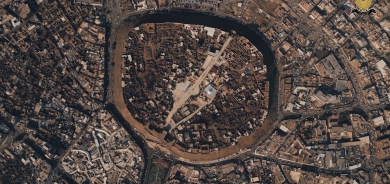The Fault With Washington

LONDON – From the perspective of the Kurds of Iraq, the United States too often appears to behave like one of those unreliable friends who only deigns to call when he needs a favour but somehow never gets around to returning one.
It has become a cliché in US political circles to describe the Kurdistan Regional Government (KRG) as one of America’s few true allies in a hostile region. It is recognized that Southern Kurdistan is one of a diminishing number of places in the Middle East where Americans can feel not only safe but also welcome.
And yet any sign that Kurds might be putting their own interests first is invariably met with an admonishing finger-wag from Washington rather than a sympathetic ear.
Take the on-going dispute between Erbil and Baghdad over Kurdish oil exports to Turkey and over the KRG’s share of the Iraqi national budget.
Washington expressed almost as much indignation as Baghdad over the KRG’s unilateral oil deals and mounted a diplomatic drive to try to block direct exports from Kurdistan.
It was only when Washington contemplated the destabilising threat of the sectarian violence in Iraq’s Anbar province in January that Joe Biden, the vice-president, found time to pick up the phone to call Kurdistan Region President Massoud Barzani and urge him to reach a solution with Baghdad on energy exports and revenue sharing.
That appeal at least had the virtue of being consistent with the over-riding priority of US policy in Iraq, which is to maintain the unity of the state, however dysfunctional, rather than confront the imponderables of its disintegration.
The very act of reaching out to the Kurds in time of need fit in with the policy of successive US administrations that have tended to take them for granted as allies of convenience while carefully avoiding any commitment to their long-term national aspirations.
That is not surprising. The United States has a record of adopting – and then dumping – the Kurdish cause, dating back to President Woodrow Wilson’s failure to deliver on his promise of a Kurdish state in the wake of World War I.
There are nevertheless signs that Kurdish leaders are becoming impatient with a one-sided relationship between the superpower and the KRG, which rates merely as a “non-state entity” in US diplomatic parlance.
When President Barzani cancelled a planned visit to Washington this month, KRG officials revealed that this apparent snub to President Barack Obama was linked to Washington’s failure to remove a legal anomaly that continues to include his Kurdistan Democratic Party and the Patriotic Union of Kurdistan on a terrorism blacklist.
It was perhaps intended as a signal that Kurdish friendship towards America and support for its policies in the region should not be taken for granted.
The controversy has not gone unnoticed in the United States. In a February 15 editorial, entitled “Open the door to the Kurds,” the Washington Post said that the escalating violence in Iraq and Syria had enhanced the importance of America’s Kurdish ally.
“The Kurdistan Regional Government in Iraq, which controls an autonomous enclave bordering Iran, Turkey and Syria, is democratic, secular, pro-Western and a determined enemy of the al-Qaeda forces that operate on both sides of the Iraq-Syrian border,” according to the Post’s editorial board.
Citing the blacklisting issue as an “enduring irritant in the US-Kurdish relationship,” it said President Barzani’s abrupt decision to postpone his Washington trip was a cause for concern.
The Post highlighted the absurdity of a sanction that related to past Kurdish resistance to the regime of Saddam Hussein and concluded: “What’s clear is that the impasse is damaging an important US relationship at a critical moment — and that the fault lies entirely in Washington.”
Rudaw














